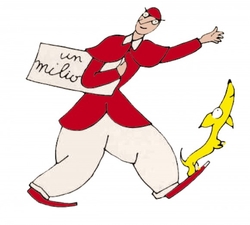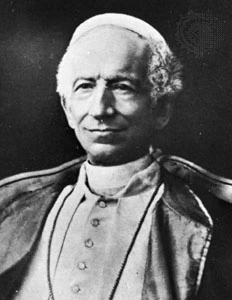Daily Archives: July 26, 2013
Legalising Drugs? Part Two
The things were, though, not so easy as they seemed at first. Some problems, I saw fairly fast; others, only as I went deeper into Catholic thinking.
Italy isn’t an island. The freedom of movement within Europe which started in 1993 means junkies from all Southern Europe would have been tempted to move to Italy. To a junkie, drug is the very first necessity, and reason of life. Heroin on prescription, of extremely safe quality and extremely cheap, would have meant the risk of an army of junkies moving to Italy without a job or prospects, as the drugs would have been prospect enough. Being EU citizen would have given them automatic, non-discriminatory access to the national health service. Today this would, of course, apply so much more to a country like England, where smart but lazy people live at the taxpayer’s expense for a lifetime, and there is an extensive system of guaranteed “welfare”. A roof on your head, basic expenses paid, no fear of the future, first-rate medical service and cheap, safe, high-quality drugs. A junk’s definition of paradise.
Not every drug is born equal. Cocaine, for example, doesn’t really have “surrogates”. You can give a heroin addict methadone (and who knows whether he’ll be content with that) but the cocaine addict will accept no substitutes. This alone would be a market big enough to ensure the survival of a drug dealers’ net. The argument that smart legalisation wipes the industry away doesn’t wash.
Drugs (particularly cocaine, which is why it could never be legalised in the first place) can make people dangerous. You can talk a lot about a controlled environment, but in the end a drug addict will tend to have an erratic behaviour. In Italy, drogato is a word commonly used to indicate not only the actual addict, but also seriously unstable people. Ask yourself whether you want a heroin addict neighbour on methadone. In time, there would be a lot of them. Then try to criminalise drugs again, and good luck to you.
Legalisation encourages lack of self-responsibility. It sends the message that if enough idiots put themselves in a big enough problem, Big Nanny will have to intervene and make their lives easy. Not only is this an extremely bad example for an entire nation, but it produces the drug addicts it claims to eradicate. Make no mistake, if your son is a tad stupid and sees drug addicts have all the fun and a halfway normal life, he will soon draw his conclusions. With the present system your car may be at risk of breaking, but your son will be at risk of becoming a drug addict only if he is a serious moron. I know what country I would prefer to live in. With remarkable soundness, the electorate of almost all European countries see this. This is one of the few issues where political correctness flies directly out of the window. A legal junkie next door? Take a hike, Mr MP.
Legalisation is deeply immoral. The Church does not allow to consent to an evil so that another evil may be avoided. Giving drugs to a human being to feed his addiction cannot be right whatever other advantages may be expected from his action. If it is permissible to give drugs to drug addicts in order for them to avoid killing themselves with drugs, it must be permissible to give condoms to sodomites in order for them to avoid killing themselves with AIDS, or to young girls in order that they may avoid suicide following pregnancy. Actually, the latter argument could be used to justify abortion.
Whatever the advantages of a certain situation, I prefer a country that chooses to do what is right and pays the price of its convictions. If it costs more in police and jails, so be it. There is a moral dimension in our lives that cannot be seen merely in terms of material advantages. Similarly, on attentive reflection the idea that a country may fight criminality by distributing to its citizens those very same poisons that it considers so bad as to make the distribution of them a serious criminal offence reveals itself as logically self-defeating, besides being morally untenable.
On the same vein, I prefer a country that calls people to pay for their own idiocy. Small idiocy, small price; big idiocy, big price. Self responsibility is the salt of life. Unless one learns this lesson one cannot call himself an adult, merely a very heavy baby. God believes in self-responsibility to the point of condemning to an eternity in hell, but some people cannot even accept drug addicts are responsible for their own addiction. One wonders.
To throw oneself from the bridge and then to expect Super Nanny to fly to the rescue whilst one is in mid-air because one didn’t know how gravity works – but thought flying is great fun! – isn’t really how it’s going to work. Rather, it is fitting that the one who chooses to throw himself from the bridge reaps what he has sown and smashes into the ground; the fathers will then lead their own sons to the bridge and show to them the trajectory and the destination. Highly educative, I assure you. In the Papal States, fathers led their sons to executions, that they may see what happens to criminals. Smart fathers, they were.
In the case of the drug addict, of course, things aren’t so brutal. The smashing into the ground happens very slowly, and the possibility of saving oneself in mid-air is still given, if one really wants to – operative words here are “if one really wants to” – . But I am sure you get my drift.
These, my dear and very patient reader, are the reasons why yours truly is on the side of the Bishop of Rome, at least in this matter. Notice, though, that on this occasion it is not yours truly who is being progressive, but rather the above-mentioned Bishop of Rome who is being, semel in anno, conservative.
Mundabor
Legalising Drugs? Part One
On occasion of Bishop Francis reiterating his opposition to liberalisation (making freely available) or legalisation (making available in certain circumstances) of drugs, yours truly has thought well to express his opinion on the matter.
There was a time (before I went back to be a practicing Catholic) when I thought a certain brand of legalisation, then pushed rather hard in Italy, was the way to go.
Broadly, what found my approval was the following proposal: light drugs like Marijuana remain illegal, with attentive enforcement; severe sanctions against not only drug dealers and pushers, but drug users remain in place; but those whom a MD certifies to be addicted can get their drugs at usual ticket price, with the normal – and very efficient – controls already in place for already legalised drugs like, say, morphine (whose medical use is common in Italy).
The thinking behind this is brutally simple: making every kind of ingress in the drug world heavily sanctioned (say: screwing hard the one found in possession of drugs), but avoiding to society the massive social cost of those already addicted (if you lived in Italy in those years, you knew the vast amount of small criminality, generally car breaking, caused by drug addicts; criminality that is “small” for the statistics, but directly affects the daily lives of one whose car is broken, or the old woman whose purse is taken away, or the constant threat of attack of one’s property).
Drugs being dirt cheap in the production, this would have had the following effects:
1) cut away the source of income for drugs dealer, whose clients would have been utterly screwed if found in possession of the dealer’s drugs, but once become addicted could have marched to a doctor and obtain a prescription for, say, $6.00 a day in today’s money. Basically, as a drug dealer you work for nothing. The dealer is here like a salesman whose clients can go away any time paying one twentieth of the price for a better product, after he had the expense and the huge risks to build the client base.
2) free the police force from the huge work involved in fighting against drugs-induced criminality and dedicate the resources to other ends (mafia and the likes come to mind; or illegal immigration; take these two away, and Italy is a very quiet country).
3) drastically improve the quality of life of the non drug addicts, whose lives were, at least in all big cities, daily impacted by the invasive, drug-induced criminality.
4) drastically reduce the further societal costs of drug addiction, from the damage caused by all the breaking – and at times vandalising – to the costs for the justice system (at the end of the Eighties in Italy drug addicted and illegal immigrants made around 90% of the jail population).
This was not a good-ist approach. It wasn’t the brainchild of bleeding hearts thinking the idiot who takes drugs is a “victim” (no he isn’t; he is an irresponsible idiot, period). It was a very practical approach to a problem at that point influencing the lives of millions.
The dividends of such a policy appeared reasonable, immediate, directly changing the lives of millions of hard-working, law-abiding citizens (again, the “poor drug addict” rhetoric was just not there: you throw yourself from a roof, you smash yourself into the ground) and promising not only to give the idiots a half-way normal life, but to the non-idiots who were the victims of the first an entirely normal one. All this not only at no-cost, but at a huge net benefit in economic and broad social terms.
Seems fine, doesn’t it?
Well, it isn’t.
To be continued… (Please wait before commenting).
Mundabor
Finding Excuses
At times I am tempted to think there are some Catholics who measure their faith from the amount of self-delusion and utter blindness they display concerning the actions of Popes.
Apparently in the Vatican there are so many wolves you would think it is a forest in Abruzzo, but who put the alleged wolves there is obviously not worth the thinking. Until it turns out one particular wolf actually luncheswith the Bishop of Rome, who partout does not want to get rid of him. The Pope has also routinely been “badly advised”, as if the advisers were the ones with the responsibility of picking good advisers. The last one, I have read this morning in my comment box: the Bishop of Rome is now concentrating on the WYD, so he can't deal with Monsignor Ricca.
Look, the Pope is not a moron. He can choose for himself. Making decisions is, actually, the most important part of his job. Important decisions aren't so terribly frequent, particularly if one has good advisers and is not a compulsive control freak. This is why the most powerful people are in the end the ones who work the least; this is also why one can be a ninety years old leader, and a force of nature like Enrico Dandolo.
The Pope always has the time, because he does not have to do the preparatory work. Also, he always must have the brains, because otherwise he should not have accepted the offer, or should resign if he can't lead the Barque anymore; so the “he is old and weak” meme doesn't work, either. Ask Enrico Dandolo about that.
The Pope is in charge. To be in charge means not only to have the power to make decisions, but to bear the responsibility for the decisions one makes. Those who think the Pope is being inadequate criticise him, but those who think he is an old nincompoop led by the hand by his advisers positively insult him.
Nor is having a bad Pope something that denies Catholicism in any way. Having a good Pope is not part of the deal one gets as a Catholic. In fact, it is revealing that as V II promotes indifferentism and general ignorance of sound Catholicism, it also subtly but forcefully promotes Clericalism. Those who aren't instructed will rely the more on what the priest tells them, and will in time naturally believe that if the priest – more so, the bishop; more so, the cardinal; most of all, the Pope – did something, then it must be right.
In this blog I insist on the readers to make for themselves a sound foundation of Catholic doctrine, using sources after V II only if they are 100% above suspicion (say: the excellent SSPX books). This is very important now, but might become it more and more in the future as the foreseeable Papacies feed us with nothing more than easy, non controversial platitudes.
Part of this solid foundation is to know that a Pope is infallible only in extremely rare cases; that he is not picked by the Holy Ghost, but by the Cardinals; that he does not have to be a living saint and can well be a great sinner; and that he can well go to hell, where several of them very probably are.
Please stop making excuses for a Pope, because if you see the sin and bend over backwards to justify it you aren't being pious, but merely an accessory in this Pope's sin.
And don't worry: the Church eats bad Popes for breakfast, and she will bury the current Bishop of Rome as she has buried many bad, very bad or utterly rotten Popes in the past. The Church who survived every Empire and will stand when the United States are a footnote in the history books does not need for Bishop Francis to be a saintly man to keep existing, or to justify Christ's Truth. You believe what the Church believes because it is the Church of Christ, not because the Pope of the day is a saintly man.
Don't make excuses for the Pope as if he were the dumb child in the family. He is not a child, and he is most certainly not dumb. Look at his actions with the purest heart you can muster, and if you think he gives scandal, with the hand on your heart have the courage to say so; in charity as much as you can, but in truth all the time.
Catholicism always, Papolatry never.
Mundabor
Franciscan Waste
I do not think one should make Bishop Francis responsible for the mismanagement – and probably, outright corruption; this is Brazil after all – of having two places for oceanic gatherings. Even Hitler thought Nuremberg could do with only one, and Hitler knew a thing or two about oceanic gatherings. When there is one structure that is good enough you don't need an expensive double, is the message. Ask Noah if he had to build a second Ark. This simple logic apparently does not work in Brazil, though.
This is the more absurd because – as the usual Rorate Caeli now informs us – the rain has transformed the horrible, spaceship-cum-rock-star concert arrangement in Guaratiba into a muddy mess. Therefore, it was simply decided to use the other mega-arrangement in Copacabana, thus making the superfluity of the Guaratibe structure evident to the dumbest mind.
Now, to have this kind of horrible “we are so cool” arrangement is bad enough; to have it double is worse; to have it such that some rain (they are in winter over there) destroys the entire effort is atrocious; but to put in place such a stupid, expensive waste in a city known worldwide for the great poverty and the shanty towns is truly the worst.
The Bishop of Rome prefers to be surrounded by his adoring fans in a simple Fiat, but I wonder whether he will find one word of apology with his sheep for this sorry mess, a true slap in the face of those poor people the Bishop of Rome has so much in his heart.
It is ironic that we might hear the usual words of condemnation of mismanagement and corruption in the day – the final, super-duper oceanic gathering for which the Guaratiba structure was built – that is the best example of it.
Once again: I can't imagine this is directly Francis' fault. But I keep noticing how much the Bishop of Rome loves to talk of honesty and courage in abstract, and how blind he is to the problems he encounters – and for which he could do something immediately, and send a message to the world – in concrete.
Monsignor Ricca, Francis' sodomite buddy, is still at his place, and I wonder whether this huge mess in Guaratiba will be answered with a single world of apology to the poor of Rio, from a Bishop of Rome always thinking what wasted money could be given to the poor instead.
Mundabor























